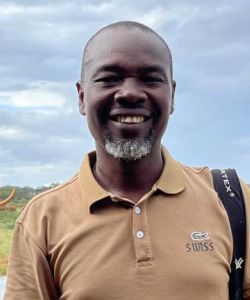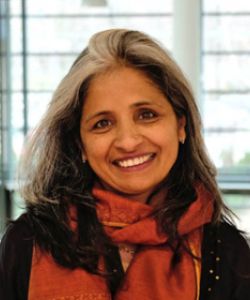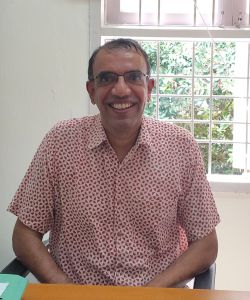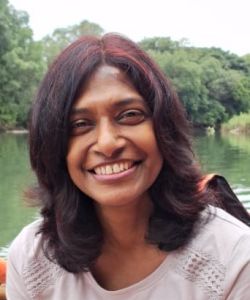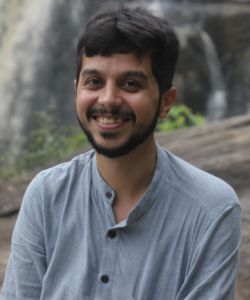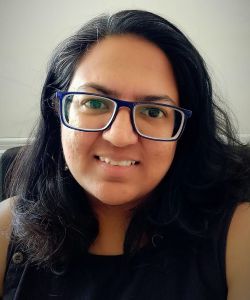Talk title:
Navigating Conservation Genomics in East Africa: A Personal Journey, Practical Lessons, and a Vision for Equitable Science
Talk summary:
Generating relevant scientific knowledge is vital for the sustainable management and equitable use of natural resources. The ongoing genomics revolution, driven by advances in sequencing technologies and bioinformatics, offers powerful tools to reverse biodiversity loss. Yet, the uptake of genomics in Africa, particularly in wildlife research, remains limited. While the lack of infrastructure and financial investment is often cited as the primary barrier, there is far less recognition of the critical role played by human leadership, creativity, and mentorship in building capacity from the ground up.
This presentation shares the journey of an early-career researcher in Kenya who, without dedicated funding or formal institutional structures, has combined personal research interests with a deep commitment to mentoring the next generation. It highlights how purpose-driven guidance, strategic partnerships, and locally relevant research projects have seeded a grassroots movement in conservation genomics.
Through stories of student-led projects, field improvisations, and intentional capacity-building efforts, this talk offers a candid reflection on how meaningful scientific progress can emerge even in resource-constrained settings. Rather than focusing on what others should do, it proposes what students, early-career scientists, and practitioners can do to drive change from within.
Bio of Speaker
Sammy Wambua
Marine Conservation Science
Dr. Sammy Wambua is a conservation genomics researcher based at Pwani University, Kenya, where he leads the Biosciences Research Centre (PUBReC). His work lies at the intersection of molecular biology, wildlife conservation, and environmental sustainability, with a focus on applying cutting-edge genomic tools to real-world conservation challenges in the Global South.
Dr. Wambua’s research spans coral reef restoration, sea turtle health, and wildlife population genetics. He has developed and applied field-ready molecular approaches to understand disease ecology in endangered turtles, uncover local adaptation in corals, and guide the design of effective conservation interventions. At the heart of his work is a commitment to building genomic research capacity in resource-limited settings through mentoring young scientists, establishing local infrastructure, and advocating for equitable access to technology and knowledge.
Beyond the lab, Dr. Wambua plays a strategic role in shaping conservation science across Africa. He actively mentors graduate students, facilitates hands-on bioinformatics training, and fosters partnerships that enable African institutions to take the lead in genomics-driven conservation. He is passionate about creating a future where conservation science is not only excellent but also inclusive, locally driven, and responsive to ecological and societal needs.
Through his participation in SCCS-Bng 2025, Dr. Wambua aims to share both the scientific insights and personal lessons from his journey—and to inspire a new generation of conservationists to think boldly, work collaboratively, and stay rooted in local contexts.
Talk title:
Climate Justice: Grounding Climate Action in Equity, Rights, and Resistance
Talk summary:
Climate change is not just an environmental challenge, it is fundamentally about equity, rights, and justice. Those who contribute the least to emissions are farmers, forest dwellers, artisans, migrants, and informal workers. But they are the ones most exposed to climate risks. Yet, mainstream climate action often sidelines their realities, focusing instead on markets, technology, and carbon accounting.
This talk draws on over two decades of work at the intersection of community action, law, and policy to reframe climate leadership through the lens of justice. It will share stories from the ground where communities are resisting extractive models of development, reclaiming rights to land and water, and building climate-resilient futures rooted in dignity and sustainability.
Grounding climate action in equity and resistance is not optional; it is essential. Without justice, transitions risk widening inequalities. With justice, they can create pathways of resilience, solidarity, and genuine transformation.
Bio of Speaker
Bhargavi S.Rao
Environmental & Social Justice
Bhargavi S. Rao works at the intersections of community action with law, policy, planning and governance. She has about 30 years of experience across research, advocacy, campaign and teaching in a variety of human rights, governance and people-centred initiatives, and in advancing environmental and social justice. She is an Independent Researcher/Educator, Experiential Learning Designer, Facilitator, Outdoor pedagogue and a Visiting Senior Fellow (Honorary) at the Impact and Policy Research Institute.
She is passionate about driving climate action and raising awareness about the pressing challenges of our time. Her efforts focus on amplifying solutions to the climate crisis while advocating for the needs of the most vulnerable communities. Committed to fostering resilience, equity, and sustainable development through collaboration, innovation, and grassroots engagement.
She has been a member of the India team of the international Comparative Covid Response (CompCoRe) project, from an STS perspective led by S. Hilgartner, Cornell Univ, S.Jasanoff, Harvard Kennedy School, & the Governance of Sociotechnical Transformations (GoST) research project.
She has extensive experience in coordinating & teaching a variety of educational programmes. She coordinates the Knowledge2Action Academy, Swissnex India, she was Co-Director of Minnesota Studies in International Development,(India Prog), Univ of Minnesota and Cities in the 21st Century and Health & Community programmes of International Honours Programme (Boston University & SIT). She teaches on faculty led Study Abroad programmes such as the GCIL, UW, Seattle, is guest faculty at Azim Premji University, Bhoomi College, Baduku college and at other universities in India & abroad. She also engages in corporate training.
She has worked with Centre for Financial Accountability, Public Health Foundation of India, Azim Premji Philanthropic Initiatives, United Way, ESG & Indian Institute Science
Talk title:
Life Below Water: Communities, Conservation and the Political Ecology of the Coast
Talk summary:
Small-scale fishing ‘communities’ are conceptually and to a lesser extent in policy firmly rooted in imaginations of coastal conservation (at sea and on land). Yet in practice are these communities really visible in conservation? And what form does this conservation take? This presentation looks at Life Below Water, SDG 14, in India, and critically examines the community in conservation in a changing Blue Economy landscape. It builds upon recent scholarship that critiques the Blue Economy discourse of sustainable and equitable growth as well as its material manifestations, highlighting the complex ways small-scale fishers are increasingly dispossessed of access to shores and seas. The community in conservation is thus reimagined – away from community-based fisheries governance to participation in activities such as ecotourism and mariculture. However, equally important, is that small-scale fishers themselves are embedded in a political economy that has shaped their own ‘developmental’ aspirations which makes a small-scale fisheries imagination for the future increasingly challenging.
Bio of Speaker
Ajit Menon
Political Ecology
Ajit Menon is a Professor at the Madras Institute of Development Studies, Chennai, India. He was a Carson Fellow at the Rachel Carson Center in Munich, Germany between October 2019-January 2020 and a L.M Singhvi Fellow at the Centre for South Asian Studies, University of Cambridge between September-December 2012. . His research and writing focus on the political ecology of forests and fisheries in south India within the wider context of how global capitalism shapes conservation and development. He is part of the Editorial Collective of the journal Conservation and Society. His co-authored and edited books include Community -Based Natural Resource Management in South Asia (Sage Publications 2007), Democratizing Forest Governance in India (OUP 2017) and most recently Environmental Politics at the Local: Natural Resource Governance in India (Orient Blackswan 2024).
